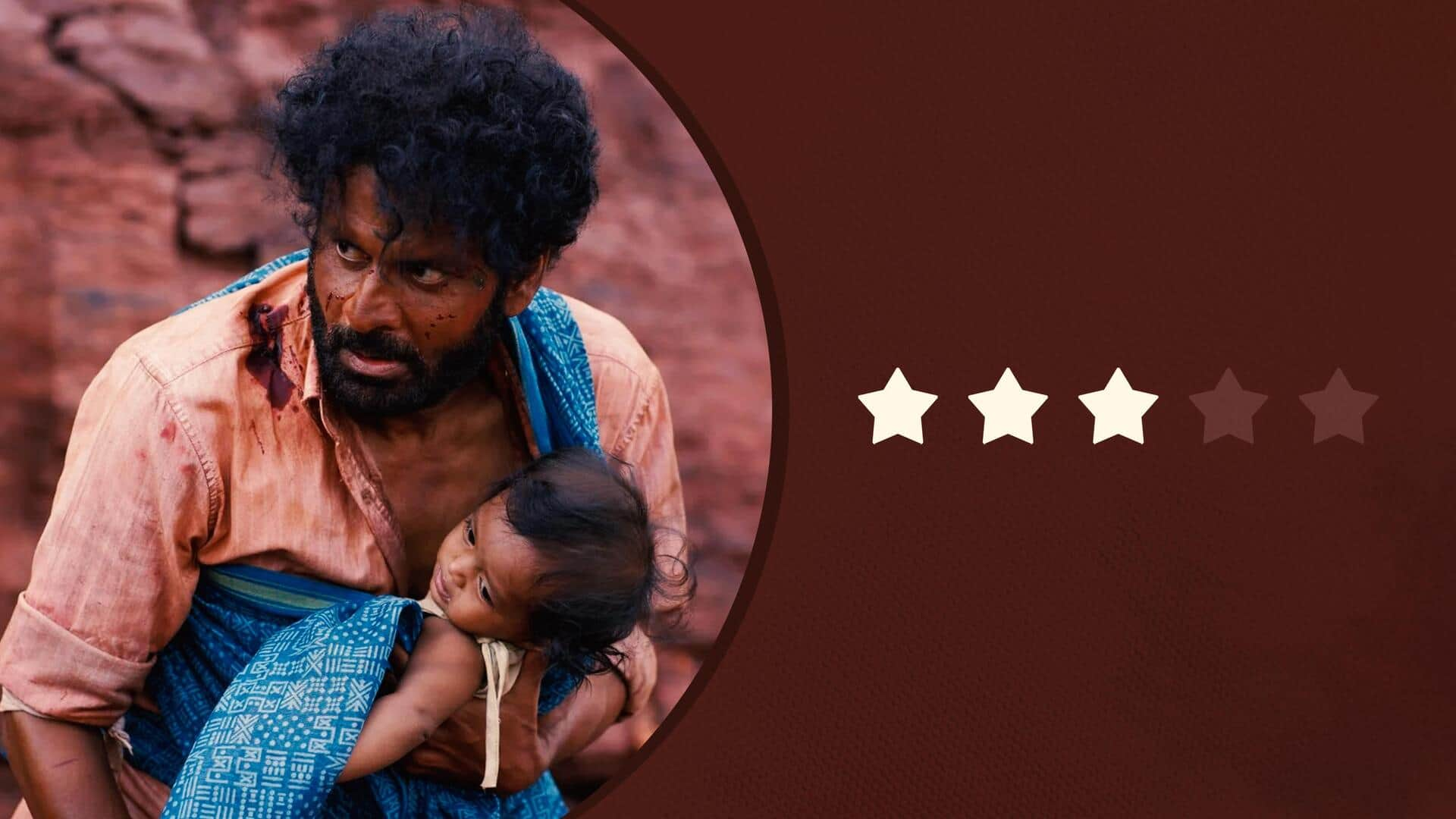
'Joram' review: A brilliant Manoj Bajpayee headlines socio-political survival thriller
What's the story
Devashish Makhija's Joram is one of those films that demand you to sit back for a few moments to completely absorb the high intensity of what you have just watched unfold onscreen. Emboldened with all the markings of an art film, Joram cuts right to the chase through a somewhat non-linear narrative and makes optimum usage of its protagonist Manoj Bajpayee's artistic talents.
Plot
This is what happens in 'Joram'
Joram focuses on Dasru (Bajpayee), a migrant construction worker from Jharkhand who now lives in Mumbai with his wife Vaano and their three-month-old daughter, Joram. However, as an ex-Maoist, he shares a dark history with now-MLA Phulo Karma, who not only orchestrates Vaano's murder but also forces Dasru to run for his life while Joram is slung on his back in a makeshift carrier.
#1
Positives: The first scene immediately puts everything into context
Joram charges into action from the very first scene, when we see Vaano and Dasru happily singing a folk song of Jharkhand. As one can expect, it immediately cuts to—and contrasts with—their hand-to-mouth existence in Mumbai; they still sing the song, but their tone is now hushed, their smiles have all but disappeared, and their backs are broken after incessant toiling on the site.
#2
The acting does all the talking here
Joram is less a film of words and dialogues and more a movie of mannerisms and acting—a department it seldom falters on. Both Mohammed Zeeshan Ayyub (as SI Ratnakar) and Bajpayee excel in this area (the latter more than the former), and this rustic and rooted film thrives on its performances. I'm still thinking of a haunting scene featuring Bajpayee—moist, hollow, sunken, despondent eyes.
#3
What does it mean to be a migrant?
Makhija's works often offer razor-sharp critique of the world we inhabit, and Joram fits right into this category, with its rapier-like analysis of what it means to be an outsider in one's own country, and at times, on one's own land. In Mumbai, Dasru is called "bahari" (outsider), and for all our fast-track evolution, we still categorize/judge people based on their regional affiliations.
#4
Who does 'development' really help in villages?
In one pivotal scene in the second half, when Dasru returns to his village after six years, all he sees are the remnants of the life that once was, the life that he left behind, the life he would have wanted for eternity. He laments the humungous loss of trees—the environment becomes collateral damage when it comes to industrial development. One's loss, another's gain.
#5
Significance of the film's title
Makhija is known for naming his films after a character in that project, some past examples being Ajji and Bhonsle. The choice of Joram's title is interesting—she's just an infant, but the larger meaning lies in how Dasru views her. For him, she's his everything and the sole driving factor behind his race toward safety and survival. His courage emanates from her existence.
#6
Flaws: I kept looking for thrill, but found none
Joram is a socio-politically charged film and doesn't shy away from calling out the system, but by no means does it provide any nail-biting thrill, even on occasions when it has ample scope to do so. It is also repeatedly marred by its predictability, and since you already know that Dasru is going to survive, it brings down the stakes by a huge margin.
Verdict
We recommend you watch it in theaters
Joram is intentionally slow-paced and at times, the effect comes first, and the cause later. If you can look past that (and the predictable portions), Joram makes for a film worth watching because of its themes, motifs, acting, and its penetrating gaze at corporate development. In the last scene, we see Dasru still running with Joram. The fight is still on. Verdict: 3/5 stars.